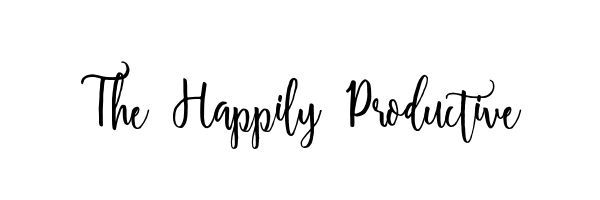Overcoming limiting beliefs means opening up to the possibility of success. Sounds good, doesn’t it?
But what exactly are limiting beliefs?
Put simply, limiting beliefs are things you tell yourself about yourself that keep you from going after certain dreams. “I’ll never get that job because I’m not smart enough” would be one, for example.
“I can’t do that”, “I’m not as good as that person”, or “I just don’t have as many resources as them” are some of the other ones.
Basically, limiting beliefs are all these little excuses you have for not achieving your goals.
Limiting beliefs can come from a wide range of experiences and things people told you throughout your life. And sometimes, they emerge from your fear of failure. Or your impression that other people are better in certain ways, compared to you.
I think it’s safe to say that we all experience limiting beliefs to a certain extent. It’s not like you can turn them off and be confident all the time.
But what you definitely can do is recognise whenever such a limiting belief crosses your mind, and then actively discard it. After all, you don’t want to miss an amazing opportunity just because you think that you’re not good enough to try, do you?
1. Ditch the negative self-talk
On some occasions, it’s better to laugh about yourself than take yourself too seriously. If you’re a terrible singer and still love to sing (me), that would be such an occasion.
But there is a big difference between healthy self-irony and negative self-talk.
Have you ever looked at a problem for quite some time, then suddenly noticed that the solution was clear as day and said: “oh my god, I’m so stupid”? That’s negative self-talk. A mild version of it, but it still is.
Anything you say to yourself or about yourself about being stupid, ugly, fat, bad at something, weird, … is negative self-talk. And you should never do that.
First of all, saying these things about yourself will make other people believe them. My dad once told me a story about a student who got hired for a job and introduced himself as “the new dopey student assistant”. And that’s all anyone ever called him afterwards. Had he avoided talking negatively about himself, people might have actually taken him seriously.
Similarly, when you say these things to yourself, you’ll be the one believing them.
How will calling yourself stupid make you feel more intelligent? Why would you call yourself ugly and then expect to feel confident in your own skin?
So instead of putting yourself down, just ditch that negative self-talk. Instead, you can constructively analyse why a certain thing happened, or why you feel a certain way.
Instead of saying ‘oh my god, I’m so stupid”, maybe it would be more fitting to think “I’m just tired because I’ve been looking at that problem for so long. I need to remember to take breaks more often so my brain can get a rest”.
Being kind to yourself will not only make you more confident and happier, but it’s also the first step to overcoming limiting beliefs.
2. Delete “I can’t” from your vocabulary
A lot of limiting beliefs start with “I can’t”. But in reality, there are very little things you actually can’t do.
Any sentence, whether said out loud our in your mind and that starts with “I can’t” (or “I don’t have time”) is probably just an excuse. So, to stop making excuses and start overcoming limiting beliefs that are holding you back, I suggest that you delete “I can’t” from your vocabulary altogether.
Maybe your dream is to create your own business, but you’re struggling to accommodate that next to your full-time job. In that case, don’t just brush it off by saying that you can’t, or don’t have time. Instead, analyse the problem and try to find a solution that might actually work for you.
You could choose to progress slowly and spend 15 minutes a day working on your project. You can do that, can’t you? And you’ll be surprised at how far you can get when you do something consistently for a year, even if it’s just 15 minutes a day!
When you’re given an opportunity that seems challenging to you, don’t reject it because you can’t. Instead, ask yourself what you would need to do to feel more comfortable doing it.
And sometimes, it’s also just about being honest with yourself and replacing “I can’t” with “I don’t want to”.
“I can’t” is always a pretty good indicator that you’re dealing with a limiting belief. So, if you catch yourself saying or thinking that, rephrase and be honest with yourself.
Overcoming limiting beliefs can be that simple.
3. Accept that you’re not perfect
Oftentimes, limiting beliefs emerge from our insecurities. One that is particularly present in my own life is imposter syndrome – the feeling that I’m still a 5-year-old pretending to do a grown-up job.
It can seem that once you get to a certain age or level, you should know what you’re doing. You should be confident and secure. And if you’re not, then maybe you’re just not good enough.
Well, it doesn’t work that way.
I strongly believe that we as humans are not meant to have it all figured out.
You’ll never know exactly what you’re doing because you have no way of calculating all the possible consequences. It’s important to make informed decisions, but it’s also normal to have doubts.
You might not feel completely confident in a situation, but that just means that you’re growing outside of your comfort zone.
Accept that you’re not perfect instead of beating yourself up about it. Acknowledge how you feel instead of trying to suppress your emotions. After all, it doesn’t matter how scared you are if you still end up taking an opportunity.
Overcoming limiting beliefs means knowing that it’s okay to have insecurities. It’s okay to be scared, and it’s okay to have doubts. Everyone has them! And that leads me to my last point:
4. Acknowledge that successful people are human, too
It can be so easy to put successful people on a pedestal. They achieved so much because they had the right resources. Because they knew exactly what they were doing, and how it would turn out. Because they were sure that they were good enough.
Well, that’s not true. In reality, there is no inherent quality that distinguishes you from successful people. They had a dream, and they worked for it. And so can you.
If you’re working on overcoming limiting beliefs, you need to acknowledge that successful people started out just like you. And if they made it, there is no reason why you can’t.
No matter what insecurity you have, you’ll probably find a successful person who had it, too. There are introverts who achieve great things. Shy people. People with IBS. There really is no excuse for not going after your dreams.
If you tell yourself that no matter how you are feeling right now, someone else has been through this (and got past it), you’re one step closer to overcoming limiting beliefs.

How do you deal with limiting beliefs? Please let me know in the comments! And don’t forget to share this post if you liked it. 🙂


Starting with small tasks is a great way to approach the ”I can’t” beliefs. Love that perspective!
Usually, we say that we can’t do something when something big is going on in our lives, so breaking it down into smaller steps is a great way to still get it done.
Thank you, I’m glad that you liked this perspective! I always feel like breaking down anything into small portions makes it seems much less daunting.
Eliminate “I can’t” – say it again! This is so important simply because it’s such a powerful excuse. I love your four steps, and I’m finding #4 to be especially helpful to keep in mind as I’m working with more and more experts.
Thank you! Working with experts must be so interesting – I love learning from people who are really passionate about their work!
Yes, I do too! At the same time, I’m certainly passionate about my work and realizing that there’s value in owning our expertise.